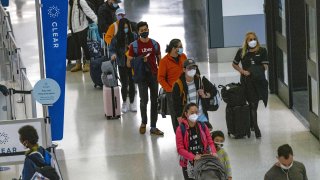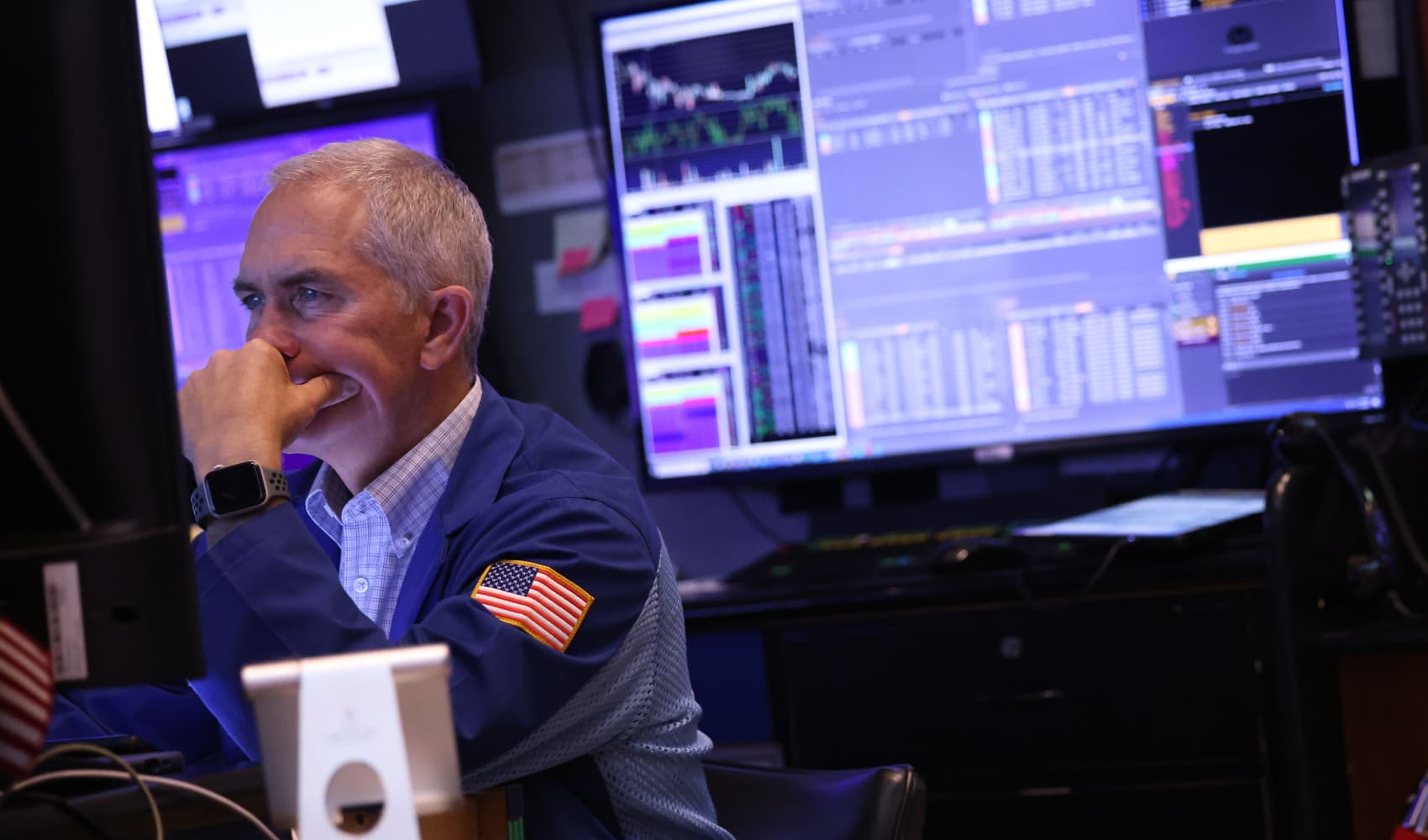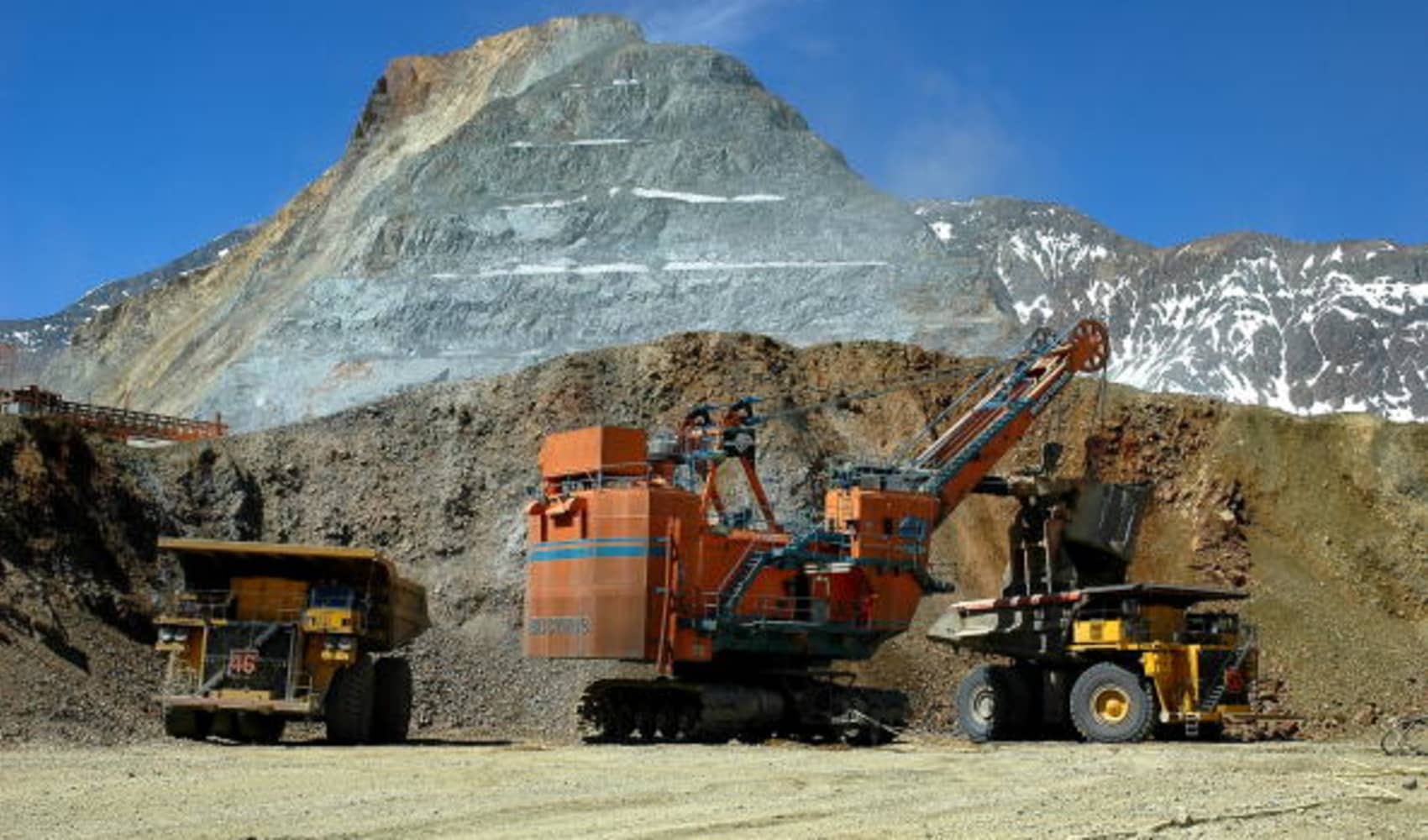
- By all indications, many Americans are traveling to see family for the holiday, despite pleas from public health officials not to do so.
- Dr. Megan Ranney, an emergency physician and director of the Brown-Lifespan Center for Digital Health, said she's "pretty darn scared of Thanksgiving this year."
- Dr. Lewis Kaplan, president of Society of Critical Care Medicine and a surgeon at the hospital of the University of Pennsylvania, said hospitals across the country are in a "very precarious place."
With Covid-19 deaths rising rapidly and daily new cases and hospitalizations both reaching all-time highs, epidemiologists and public health officials are warning that Thanksgiving will exacerbate an already severe nationwide outbreak.
By all indications, Americans are traveling to see family for the holiday, despite pleas from public health officials not to do so. About 1 million Americans boarded planes this past weekend, the biggest crowds seen by the industry since the spring.
Videos and images of the packed travel hubs came days after the Centers for Disease Control and Prevention on Thursday urged Americans not to travel for the holiday. Dr. Henry Walke, the CDC's Covid-19 incident manager, said the agency is "alarmed" by the "exponential increase in cases and hospitalizations and deaths" caused by Covid-19.
He said packed "transportation hubs" could drive more spread, along with family gatherings for the holiday.
'Accelerator event'
Money Report
Dr. Bill Schaffner, an epidemiologist at Vanderbilt University, said he's "very concerned" that people will not only "be giving thanks, but we'll also be giving the virus" as they gather for Thanksgiving this year. He added that the kinds of people who will be traveling for Thanksgiving will likely be the same people who are less careful with their own lives when it comes to following public health recommendations on a daily basis.
And unlike previous holidays that appear to have led to a spike in cases, such as July 4 and Memorial Day, Thanksgiving will expose more older Americans to the virus than ever before.
"Remember, family gatherings are transgenerational and there will be lots of older people there and Susie with her diabetes will be there and Uncle Frank with his chronic cough from smoking and his lung disease will be there," Schaffner said in a phone interview. "I'm even more concerned that high-risk people will be exposed across the country to this."
Thanksgiving could be an "accelerator event" for the outbreak, he said. And it is coming at a time when, by all indications, the outbreak is growing more severe by the day as hospitals fill up and daily new deaths rise rapidly.
'Pretty darn scared'
Dr. Megan Ranney, an emergency physician and director of the Brown-Lifespan Center for Digital Health, said she's "pretty darn scared of Thanksgiving this year."
"I'm not scared for the day itself, but for what's going to happen, two, three and four weeks later," she said. "You can't get a higher risk activity than sitting around a table unmasked indoors for hours, so we're just risking seeding hundreds of thousands, if not millions of new infections, which will then, of course, lead to hospitalizations and deaths."
With the holiday, households across the country will become "super spreader events," Ranney said, pointing to gatherings that caused documented outbreaks, such as a wedding in Maine that led to more than 170 infections and at least seven deaths, according to the CDC.
"We're going to see those happen in families across the country," she said. "If we're not careful during Thanksgiving, we're going to take what is already going to be a really, really difficult December and make it two or three or four times worse."
The surge in Covid patients is straining many hospitals across the country, which are already struggling to provide care for those who need it, Ranney said. Data published last week by the Department of Health and Human Services shows that about 20% of American hospitals faced or expected to face a staffing shortage last week.
If hospitals continue to have staff constraints, the number of preventable Covid-19 deaths will rise, Ranney said.
Hospitals in 'precarious place'
Dr. Lewis Kaplan, president of Society of Critical Care Medicine and a surgeon at the hospital of the University of Pennsylvania, said hospitals across the country are in a "very precarious place."
He noted that most hospitals are still open for elective procedures, which were delayed across large swaths of the country this spring amid the initial surge of Covid-19 patients. The combination of standard patients coming into the hospital for procedures and the rise of coronavirus patients threaten to "rapidly overwhelm hospitals," Kaplan said in a phone interview.
Morale within his hospitals is suffering, he added.
"Everyone is worried," he said of nurses, doctors and other health-care workers. "They are exhausted by seeing people who are impacted by Covid in the hospital, and then on their way home or to the store, seeing people who have not at all embraced standard public health measures."
It's unclear how bad it will get, Kaplan said, adding that "I'd love to have a crystal ball." Some hospitals are already beyond their number of licensed beds, he said, and the supply of trained staff, protective equipment like masks and even medications like the steroid dexamethasone are rapidly diminishing. He said hospitals will face difficult decisions as they potentially prepare to cancel elective procedures again or ration care.
"There is a lot of uncertainty, and uncertainty breeds fear," Kaplan said. "So much of that remains uncertain that everyone is on edge. And the on-edge clinicians, the on-edge support staff person is more likely to make a mistake because you are distracted."
Not just Thanksgiving
Dr. Krutika Kuppalli, an infectious disease researcher at the Medical University of South Carolina in Charleston, said she doesn't think "anything good is going to come out of" Thanksgiving this year.
"I think there's really a concern that the health-care system is going to become overwhelmed," she said. "Quite frankly, I'm a little bit concerned we might start seeing things on a scale of what we saw earlier this year in places like China and Spain and Italy."
She added that it's not just Thanksgiving; The country could see a holiday-driven spike in mid-December, just as people celebrate Christmas, Hanukkah, Kwanzaa and New Year's. The U.S. has previously seen a drop in cases immediately around holidays like Labor Day, as fewer people seek testing and clinical laboratories shutter for the holiday. That could make it look like the outbreak is subsiding as it quietly gets worse.
State and local governments are doing "the best they can" to implement effective restrictions that drive down the spread, Kuppalli said, but what's needed is a national plan, especially with so much interstate travel for the holidays.
"I've been touting this since the beginning of the pandemic: We need a national plan," she said. "The fact that we don't have a national plan to me is such a complete and utter travesty, because what happens is we now have 50 states doing 50 different things."






